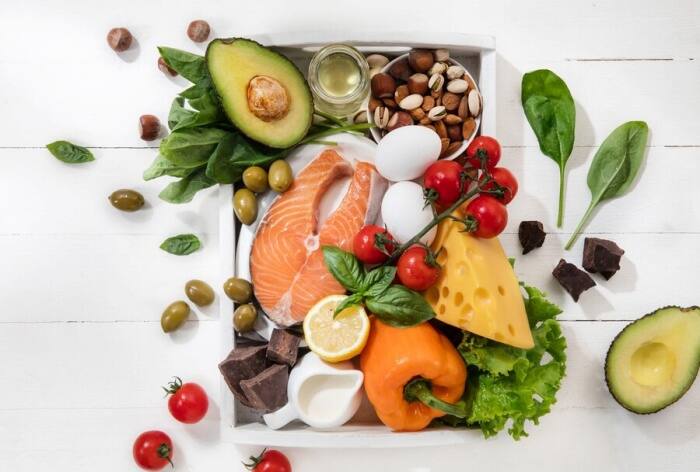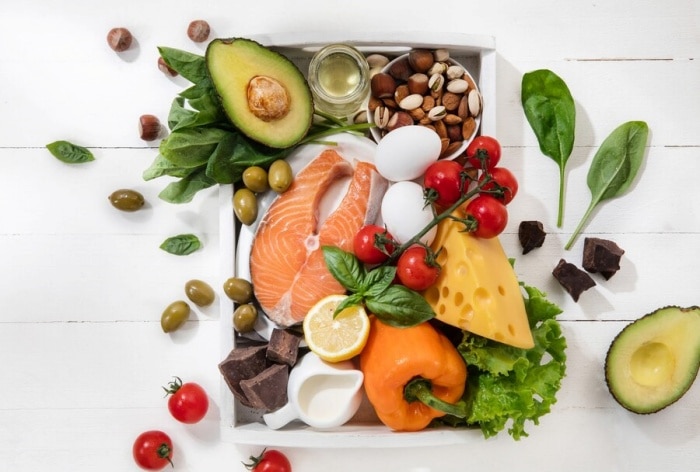Not all fat is bad and here is why a certain amount of healthy fats are required for the body.

(Freepik)
“Fat is not good for health.” This is one statement we all have heard. However, not all fat is bad. Fat is actually essential for the body for many reasons. While it remains true that excess of fat can be harmful, healthy fats are the body’s requirement.
Why Fat is Essential For the Body?
Celebrity nutritionist Lovneet Batra enlists why fats are important.
- Essential Fats: Our bodies need fats for vital functions like nutrient absorption, hormone production, and cell growth. Without them, we’re missing out on crucial health benefits.
- The Right Kind Matters: Not all fats are created equal. Trans fats and some saturated fats (like those in processed foods) can be harmful, but monounsaturated and polyunsaturated fats (found in avocados, nuts, seeds, and fish) are super beneficial.
- Feeling Full: Fats help you feel satiated after a meal. This means you’re less likely to overeat or snack unnecessarily, which is key for weight management.
- Metabolism and Nutrients: Healthy fats can actually boost your metabolism and help your body absorb fat-soluble vitamins (A, D, E, K). This leads to better overall health and can aid in weight loss efforts.
Apart from these it is an important source of energy and works for the benefits of hormone production as well.
- Energy Source: Dietary fat serves as a concentrated source of energy. It provides more than twice the amount of energy per gram compared to carbohydrates and proteins. Fat is stored in adipose tissue and can be broken down and utilized as fuel when the body needs energy. This is especially important during times of prolonged physical activity or when caloric intake is reduced.
- Hormone Production: Fatty acids are involved in the production of hormones. Certain hormones, such as estrogen, progesterone, and testosterone, are synthesized from cholesterol, which is a type of fat. These hormones are crucial for reproductive health, regulating metabolism, and maintaining overall hormonal balance.
- Cell Structure and Function: Fats are an integral component of cell membranes. They help maintain cell integrity, provide insulation, and facilitate communication between cells. Additionally, certain fats, such as omega-3 and omega-6 fatty acids, are considered essential fatty acids, meaning they cannot be produced by the body and must be obtained through the diet. These essential fatty acids are important for proper brain function, vision, and inflammatory response.
While fat is important for various physiological functions, it’s essential to focus on consuming healthy fats. Unsaturated fats, such as those found in avocados, nuts, seeds, and olive oil, are considered healthy fats and should be emphasized in the diet. On the other hand, saturated and trans fats, found in high amounts in processed foods, fried foods, and fatty meats, should be consumed in moderation due to their potential negative impact on cardiovascular health.
Understanding the role of fat in the body and making informed choices about the types and amounts of fat consumed can contribute to overall health and well-being. It’s advisable to consult with a registered dietitian or healthcare professional for personalized guidance on incorporating fats into a balanced diet.
Often, it’s not fat but an excess of processed carbs and sugars contributing to weight gain. It’s about balance and choosing whole, unprocessed foods.
Remember: Incorporating healthy fats into a balanced diet is crucial. You just need to understand how to make it work for your health and goals. So, next time you’re about to skip that avocado or nuts thinking they’re ‘fattening,’ remember they’re your friends on your journey to a healthier you!

